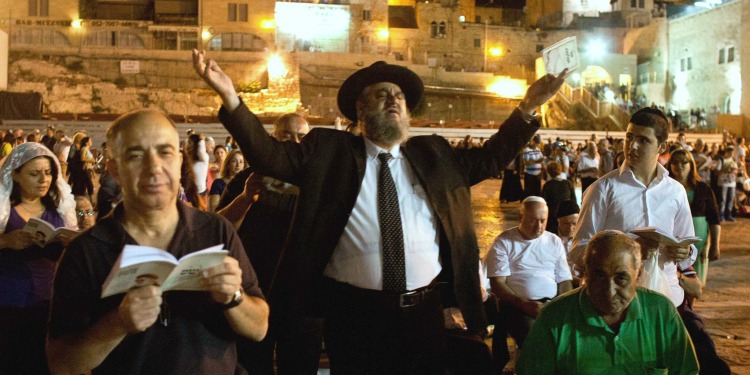Moving Beyond ‘I’m Sorry’
The Fellowship | September 18, 2017

This past Saturday night was no ordinary Saturday night. Instead of watching Netflix and preparing for a busy week as I usually would, I ventured to synagogue at 12:30am – after dunking in a mikveh (ritual bath) to begin the process of selichot.
Selichot, which translates as forgiveness, is a book of special prayers and supplications which Jews around the world say from the first day of the week of Rosh Hashanah every day through Yom Kippur. The recital of supplications for forgiveness is a vital part of our repentance and preparation for the New Year. We say these supplications together, as a community, asking for forgiveness for ourselves, for everyone present, and for the entire world.
So there I was on Saturday night in moonlit Israel, singing supplications with my hand drum wrapped under my arm, as the cantor strummed his guitar to the ancient words we recited. Thoughts of repentance entered my mind and I tried my best to focus on them, but questions kept on tugging at my heart: “Is this sincere? Have I really focused on regretting my spiritual shortcomings, or am I simply going through the motions of saying these ancient words?”
These questions kept nagging at me throughout the night. When you set a time each year to focus all of your energies and prayers on repentance, it’s too easy to rely on the traditional words to do the repenting for you. How often do we open up a prayer book and say the words without really meaning them? How often do we read the words of the Bible and cry at the realization that God is speaking directly to us? Traditional holy books and prayers are priceless – but they don’t take the place of prayer from the heart.
I beat myself up for not “feeling” the selichot I was saying, until I began to look at God as our Father, and not just our King.
How often as a parent do I get upset at my children only to regret it a short while later? How often do I long to hear the words them apologize for their wrongdoings? When my child comes to me and says “I’m sorry, Dad,” I don’t ask if they’re sincere…I embrace them lovingly and leave my disappointment and anger behind.
So as I was saying selichot, my eyes closed and my drum beating, I thought about how God must feel each time we do something wrong. It must make Him sad. I can imagine Him waiting for us to say the words “I’m sorry” so that we can move on. I don’t claim to know how God thinks, but the analogy of parent has been used many times in Scripture to describe God’s relationship with us. And it fit this situation perfectly.
And in this light, as I recited the supplications with my congregation, admitting guilt for sins both large or small, begging and pleading for God to overlook our iniquities and to forgive our transgressions, I felt for joy and relief from on high, and let my guilt go, leaving me with something much holier, and the desire to do good in the eyes of God from this point forward.
Selichot – and all repentance – is our way, as His children, of saying the magic words of “I’m sorry” and “I will try to do better.” The extent to which our apologies are sincere, the degree that we are committed to changing, improving, and purifying ourselves, is hard to determine. But on Saturday night, I came to realize that simply admitting fault and asking forgiveness – with the desire to do better going forward – enables God to forgive us, and to get back to what He wants, which is to love us and bestow His blessings on us for a happy and healthy New Year.
-Ami Farkas
